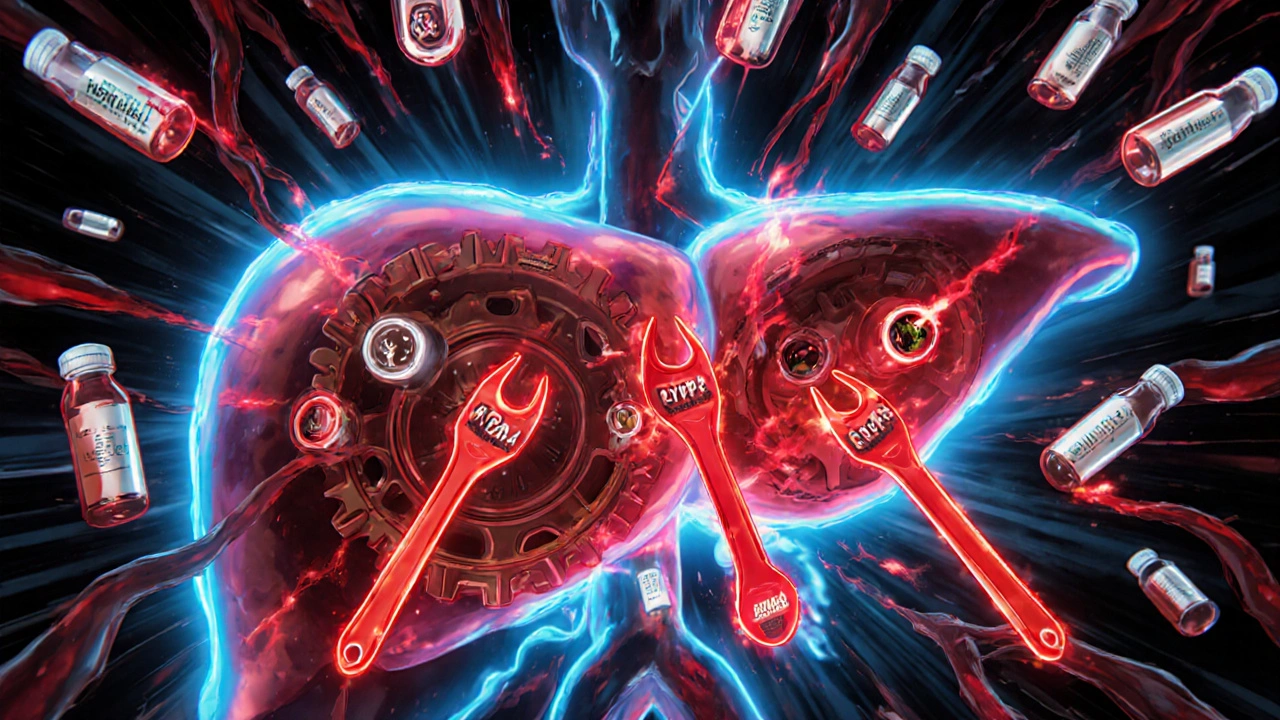CBD and Medications: What You Need to Know Before Combining Them
When you take CBD, a non-intoxicating compound from the cannabis plant used for pain, anxiety, and sleep. Also known as cannabidiol, it's becoming a go-to for people trying to reduce reliance on prescription drugs. But here’s the thing: CBD doesn’t just sit quietly in your body. It messes with the same liver enzymes—CYP3A4 and CYP2C19—that break down over half of all common medications. That means if you’re on blood thinners, antidepressants, seizure meds, or even statins, CBD could make them stronger, weaker, or cause unexpected side effects.
Take warfarin, a blood thinner used to prevent strokes in people with atrial fibrillation. Studies show CBD can raise warfarin levels in the blood by up to 30%, increasing your risk of dangerous bleeding. The same goes for clobazam, an anti-seizure drug often prescribed for epilepsy. One 2019 study found children taking clobazam with CBD needed lower doses because the CBD slowed its breakdown—leading to more sedation and drowsiness. Even levothyroxine, the thyroid hormone replacement taken daily by millions, can be affected. People report fluctuating thyroid levels after starting CBD, even when they take it hours apart from their pill.
It’s not just about liver enzymes. CBD can also amplify drowsiness from benzodiazepines, opioids, and sleep aids. If you’re on tizanidine, a muscle relaxant used for spasticity, combining it with CBD might leave you too sedated to drive or even stand safely. And don’t assume natural means safe—CBD products vary wildly in strength and purity. A bottle labeled "10mg CBD" might actually contain 25mg, or traces of THC, or contaminants that further complicate interactions.
You’re not alone in using CBD with other meds. Most people don’t tell their doctor. But if you’re taking anything regularly—especially for heart, brain, liver, or mental health—you need to talk to someone who knows how these systems connect. The good news? You don’t have to quit CBD. You just need to manage it like any other medicine: start low, monitor closely, and track how you feel. Some people do fine with low doses. Others need to avoid it entirely. Your body’s response isn’t guesswork—it’s data. And that data matters more than any online forum or influencer’s opinion.
Below, you’ll find real, evidence-backed guides on how CBD interacts with common prescriptions, what to watch for, and how to adjust safely. No fluff. No hype. Just what works—and what doesn’t—based on clinical studies and patient experiences.
CBD Oil and Prescription Medications: How CYP450 Inhibition Causes Sedation and Drug Interactions
CBD oil can dangerously interact with prescription medications by inhibiting liver enzymes that break down drugs, leading to sedation, overdose, or bleeding. Learn which meds are at risk and how to stay safe.
- View More
- 15

